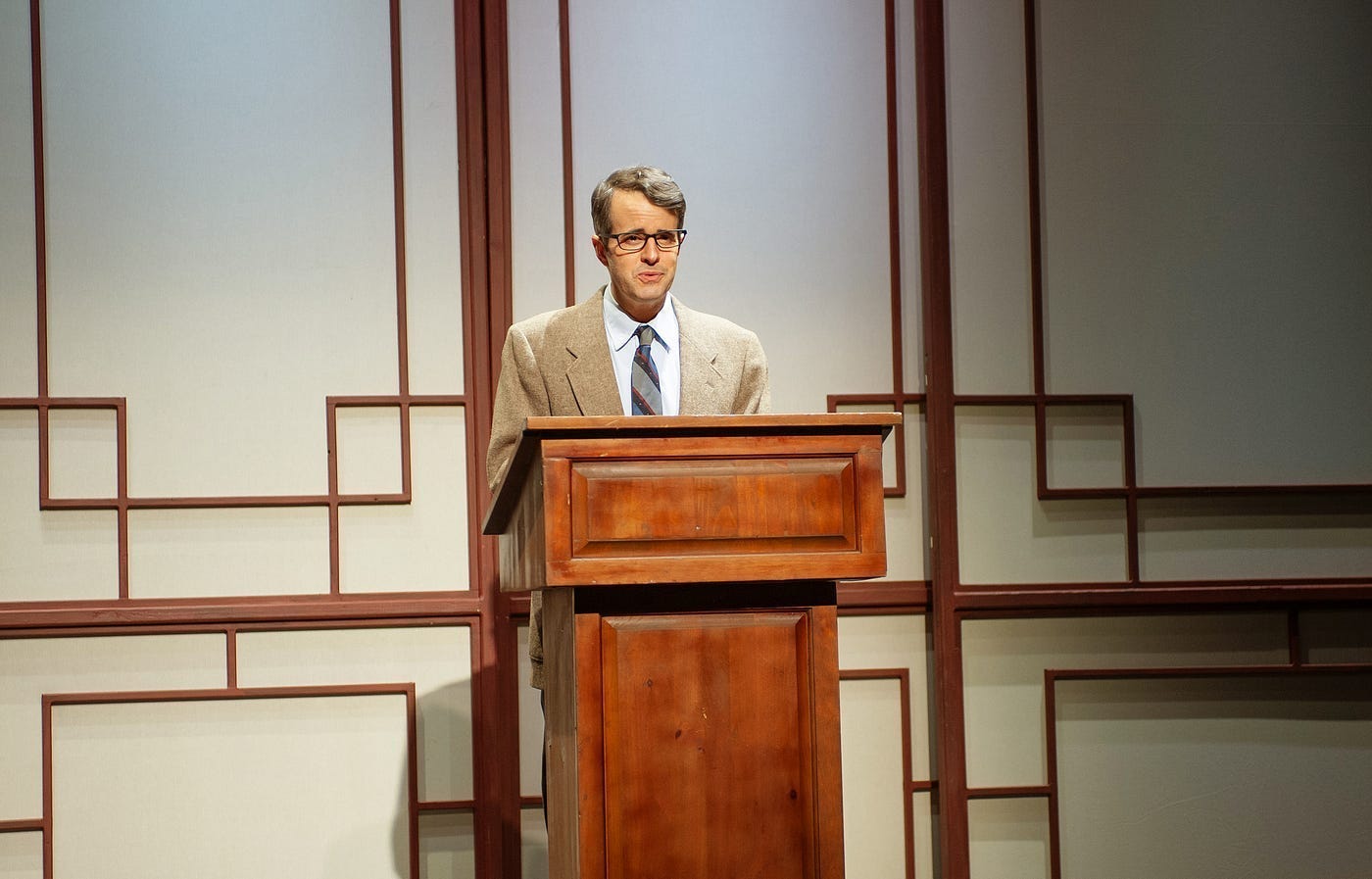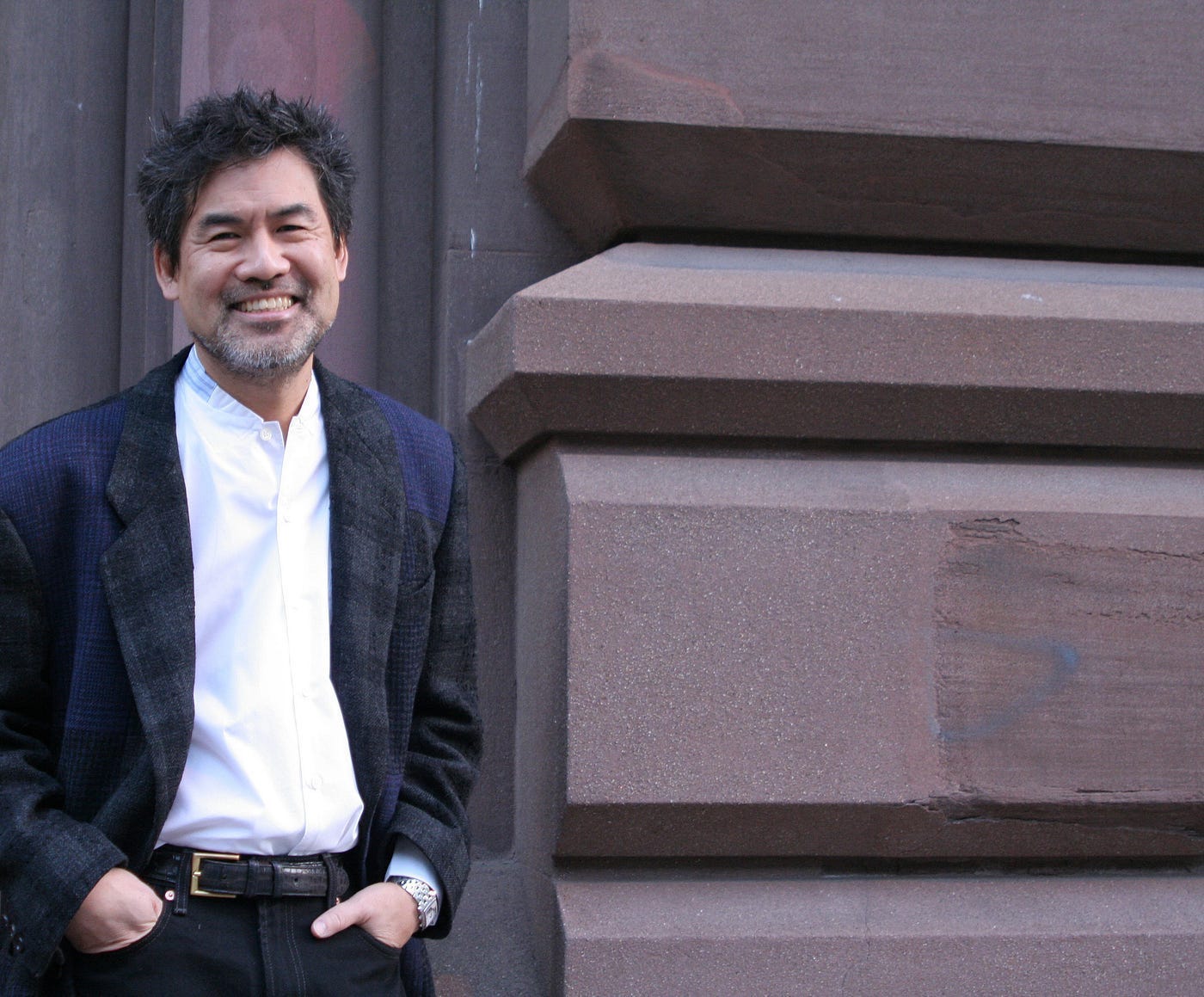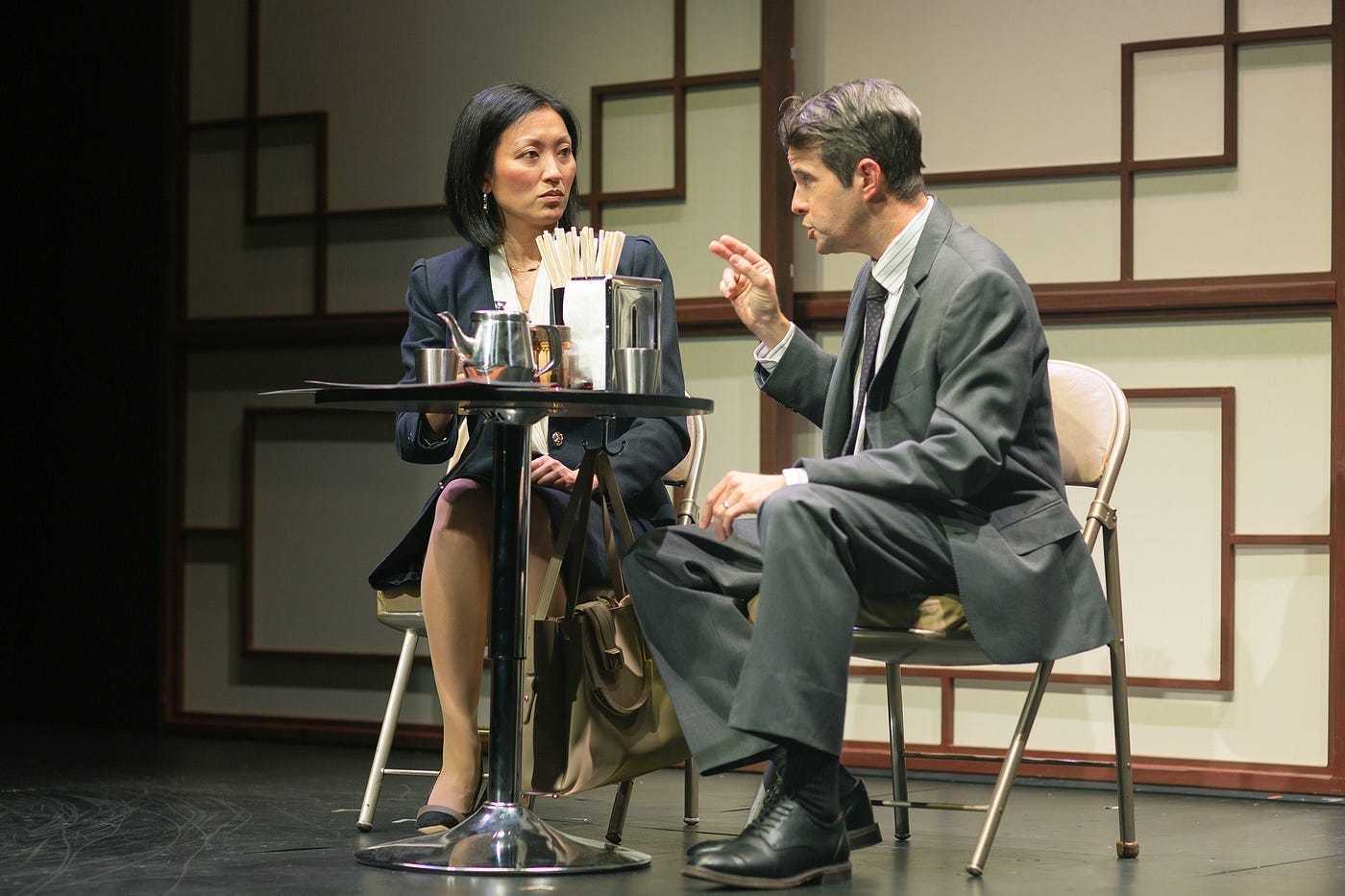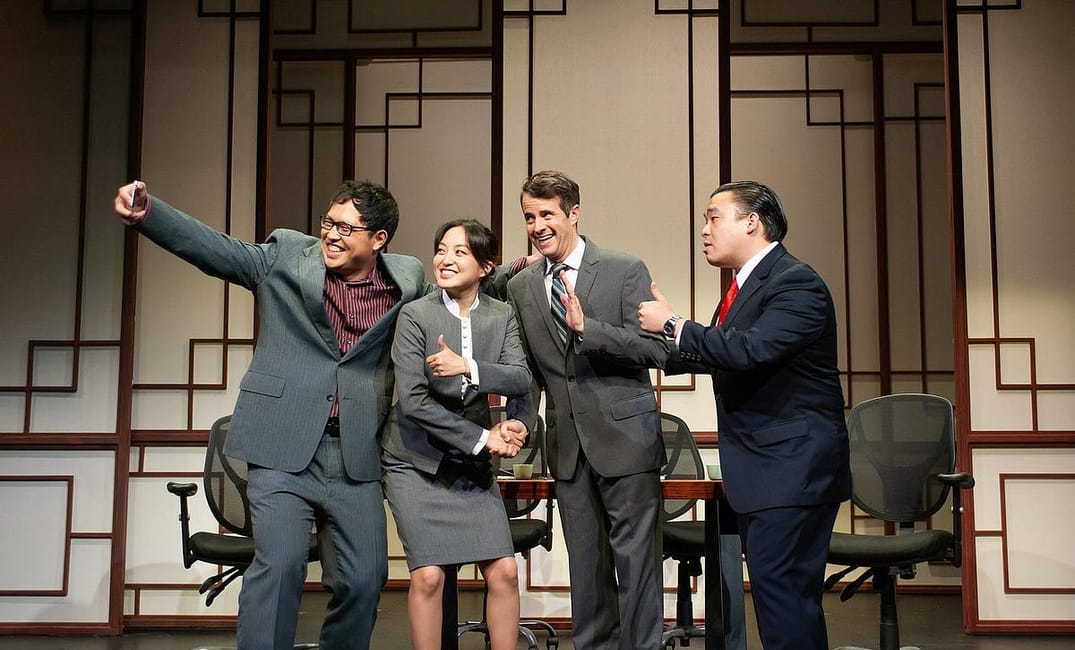Imagine you’re an American, tasked with flying to China to drum up new business. You don’t speak Mandarin, and you only have a few business contacts. You’ll need to trust those contacts, and their various translators with your professional future. Sounds daunting, right? This is the dilemma at the center of the hilarious and eye-opening Chinglish. I was invited to opening night.
Staged inside the San Francisco Playhouse — a former Elks hall lovingly transformed into a theatre in 1982 — the experience of Chinglish begins with signage, and parts of the show’s program with side-by-side Mandarin translations. I have no idea if those translations were correct, but either scenario would fit with the ‘lost in translation’ theme of Chinglish.

It is AAPI month, and “Stop Asian Hate” — two years removed from it’s founding — is a movement still fresh in our minds; a play called Chinglish feels like it’s pushing the boundaries of cultural sensitivity today. Right?
But “chinglish” is in the Oxford English Dictionary, and the word has a Wikipedia page, which dates the earliest usage of the word chinglish to 1936.
The language barrier is one China has acknowledged: as recently as the late 2000s, the Beijing Olympics led state-sponsored efforts to replace 400,000 street signs and 1,300 restaurant menus so English speakers would understand. The results were, at times unintentionally hilarious.
“Who wouldn’t be thrilled to walk into, say, Barney’s and find a sign reading ‘Fuck the Certain Price of Goods?’ But it should actually read, ‘Dry Goods Pricing Department.’ Unfortunately.” — Daniel Cavanaugh/Chinglish
These issues are also near to playwright David Henry Hwang, whose work has in several instances focused on the relationships between Chinese people and Americans.

Probably best known for his 1988 play M. Butterfly — which won him a Tony for Best Play — Hwang would go on to co-write the book for Aida in 2000, and a 2002 revival of Flower Drum Song, which tells the story of a Chinese family and the cultural clashes they encounter in San Francisco. That revival had an all-Asian cast.
The original 2011 version of Chinglish was inspired by a trip Hwang took to China where he saw a bunch of mis-translated signs in an arts center. Reactions to his work were mixed to positive, with The New York Times noting the play was too conscientious of the language barriers, leaving less room for laughs.
The original script also suffered translation issues but not English ones: A significant portion of Chinglish is performed in Mandarin. Hwang also adapted Chinglish to reflect the changing geopolitical realities of China in 2015, and what resulted was the script that arrived at San Francisco Playhouse in 2023.
Cultural consultant and translator Patrick Chew stepped in to fix problema with the script, working with the actors — who had already begun rehearsals — to update their lines for accuracy.
How have 2023 audiences received Chinglish?
“Hwang has cultivated scenarios so ripe and plump they seem to burst with jokes about mistranslation and cultural differences,” Lily Janiak wrote recently for the San Francisco Chronicle.

I loved the show too. So did my date, Jose Kwan. He grew up in Hong Kong and despite speaking Cantonese he immediately related to the show, “I can understand how some of those signs can be mis-translated in those ways,” he said. “Certain words can have multiple meanings, and when they chose the wrong one it added a layer of humor.”
The hilarious script is accentuated by a stellar cast. As Cavanaugh, Michael Barrett Austin is relatable, charming and affable as he navigates through triumphs and disasters. Peter Timms is masterfully portrayed by Matthew Bohrer, I could not take my eyes off of Sharon Shao as translator Miss Qian, and Nicole Tung is mesmerizing as the powerful yet soft-hearted Xi Yang.
The staging is simple and elegant and at every moment accentuates the action on stage without distracting from it. The use of projections just enough to be useful, but not enough to be tacky.
“The theme is mis-interpretation,” added Kwan, “but the outcome is real dialogue.” After the show, Jose and I talked at length about the differences between our cultures, delighting in each other’s stories. I learned a lot.
“Asians are very rarely represented in pop culture,” said Kwan, appreciative of the representation on display in Chinglish’ mostly-Asian cast.
Chinglish will take you on a hilarious and revealing journey to mainland China, and by highlighting some of our cultural differences with comedy, San Francisco Playhouse invites the theatre goer into a pivotal moment in history when commerce brought nations and cultures together, with the universal goal of garnering money and power.
Christopher J. Beale is an award-winning journalist, media host, producer and audio engineer based in San Francisco. christopherjbeale.com







